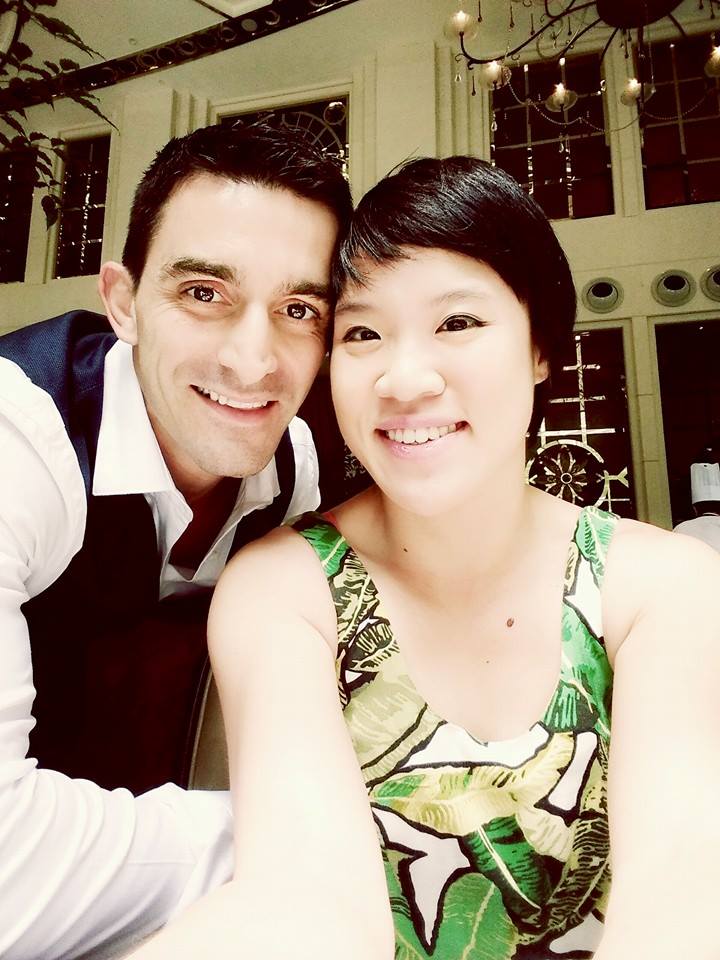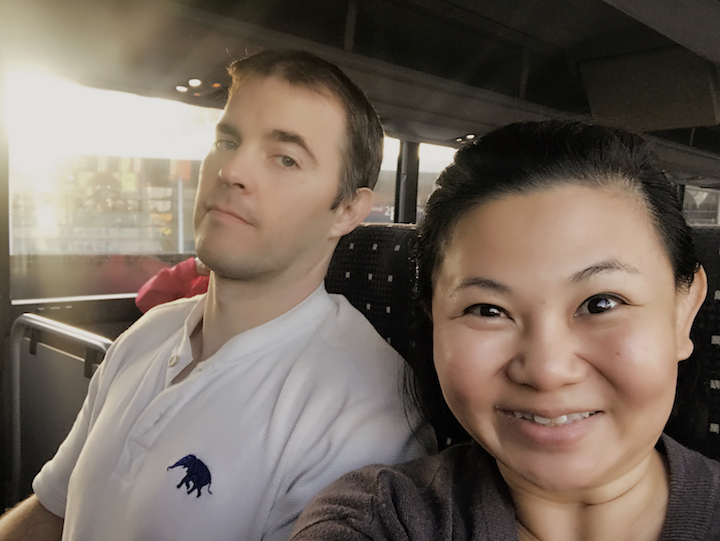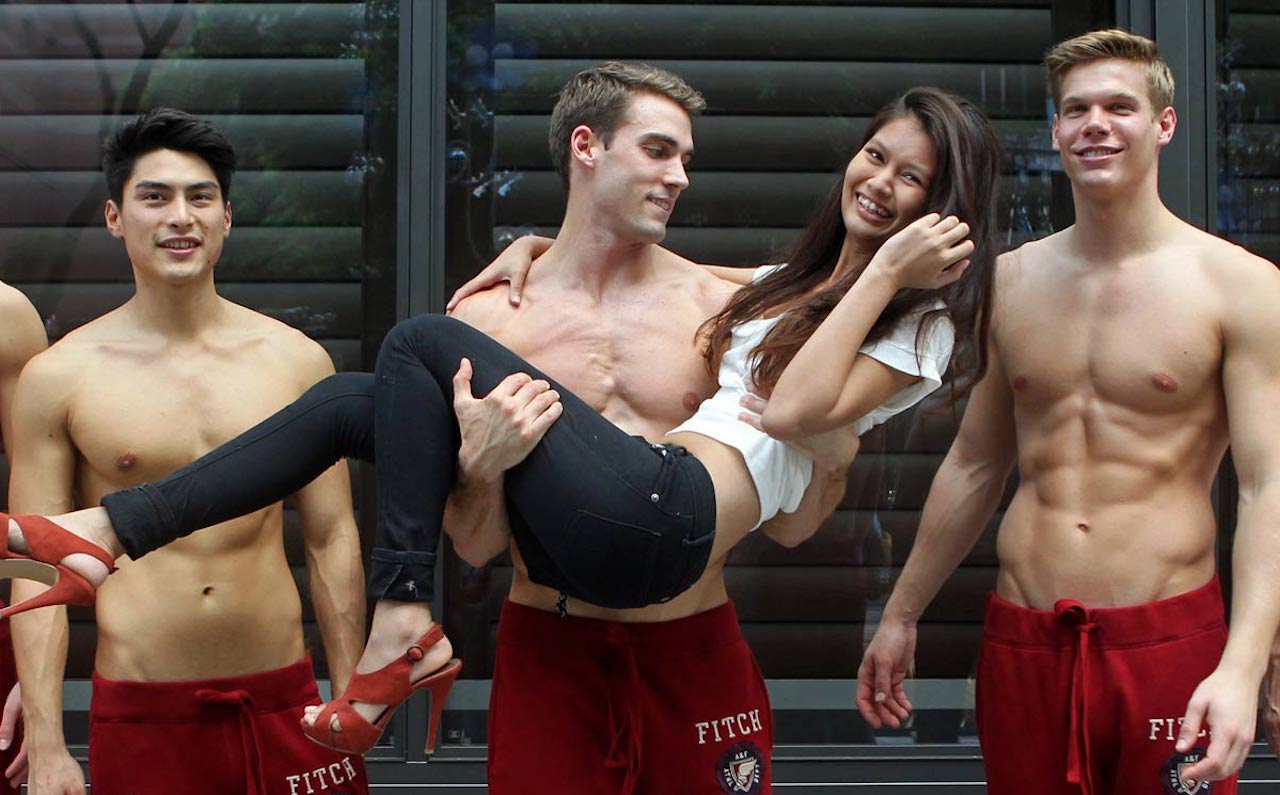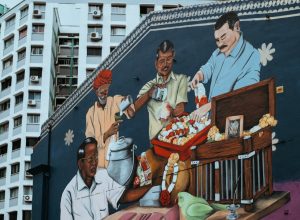Featured image credit: TNP
For many of Singapore’s frustrated PMETs, HardwareZone’s forum page has long been the online playground of choice. It’s where they go to rant and rave about the injustices they endure on a daily basis, appalled that the world doesn’t treat them better.
It’s also where, when you do a quick search for ‘AMDK,’ you’ll find yourself wading in a cesspit of crude and sometimes bizarre stereotypes of White people.
Unfamiliar with the term? ‘AMDK’ stands for ‘ang moh dua kee,’ which roughly translates to ‘White people big shot.’ It refers to perceived Western superiority, and alleges that Singaporeans get criticised for seemingly banal things that Caucasians conversely attract praise for.
This one example sums it up perfectly:
AMDK at 1.75m tall: Height is just right. My type!
Sinkie at 1.75m tall: Sorry, you too short.
On Reddit, there’s a neatly organised compilation of such comparisons. As for whether these double standards truly exist, I decided to ask a few Caucasian men (and their Singaporean partners for an added local perspective) what they think.

38-year old Alain Moggi, who is Belgian, says that he has never experienced any of the privileges mentioned in the Reddit thread. He goes on to ask if it’s parody. Denise, his wife, tells me, “My view is that some people are over-sensitive, and have too much time on their hands.”
She adds that these statements come off as really insecure.
The couple, who have been together for 7 years and married for 2, met at a Muay Thai camp in Chiang Mai. Denise shares that she’s never discounted dating local men, but points out that she’s received narrow-minded comments about how women look better with long hair (she wears a short pixie crop) or should know how to cook.
“These men would never have gone out with me because they would have deemed me too “unconventional” (therefore unattractive) by their standards; I’m also a proud feminist, opinionated, and a martial arts practitioner,” she says.
At the same time, Denise qualifies that she used to believe that Caucasian men would somehow be more open-minded. She’s since discovered that some are, while some are not.
Similarly, Alain questions, “There are so many different types of Caucasian and Asian or Singaporean women. How can a race determine whether a woman is such or so?”
For him, it was never about realising that Singaporean or Asian girls are “the best.” At their Muay Thai Camp, they never even spoke until there was a gathering over some beers. It was then that Denise says they realised they got on like a house on fire. After that, Alain says, they had to find a way to stay together.
Addressing one of the many stereotypes around Singaporean women who date White men, Alain says, “My wife is not subservient by the way. If she doesn’t like what I’m doing I will know, trust me!”
“Also I’m not a rich ang moh at all,” he adds, laughing, “And on occasions my wife says I’m more Asian than her.”
“People need to stop perpetuating the idea that Singaporeans are losers or inferior to Caucasians, and this begins with ourselves!”
Admittedly, some AMDK/Sinkie comparisons do stem from very real issues. In multinational corporations, for instance, where Singaporeans find themselves working alongside Caucasian colleagues who may be more aggressive and confident than they are competent, it can get particularly frustrating.
Many years ago, I freelanced for a client whose resentment towards Caucasians had accumulated this way. Having dealt with “ang mohs” before he started his own business, he detested them, categorising them as lazy, parasitic workers who took credit for everything everyone else did. They were “all talk and no action,” he insisted, and never understood why they got promoted anyway.
On the other hand, he loved the mainland Chinese vendors we worked with—even when they consistently cut corners.
I never could tell if he’d genuinely suffered a bad experience, if this was some sort of misguided nationalism, or just prejudice, plain and simple.

When it comes to stereotypes, 35 year-old Brad, who’s Canadian and works as a chiropractor, says, “I’m aware of them, but at the end of the day I know people are going to see what they want and think what they want. So I try not to worry about what I can’t control.”
His girlfriend, 28 year-old Caroline tells me that when they first started dating, her family was extremely wary. After all, they had no idea how long Brad was planning to stay in Singapore for, or what his intentions were.
“Like Chinese boys are always up to good!?” she reasonably points out. Apart from her family’s response, “WAH YOU SPG NOW AH,” was also a reaction she received on countless occasions.
Interestingly enough, Caroline also explains that without a doubt, she had never seen herself dating a Caucasian man.
“I used to work in an organisation where I worked across regions with people from different cultures and that was already challenging for me,” she says, “In my head, foreign—Caucasian or not—was different = more effort.”
While Caroline met her boyfriend on what she calls the “complete lack of humour dating pool that is Tinder,” 38 year-old Deborah, who works as the head of content at a tech company, met her British husband at the now-defunct China One when she was celebrating her birthday. Simon was there playing pool with a friend, she tells me, and was consequently introduced to her by a staff member.
Deborah goes on to talk about how she avoids overt public displays of affection because the last thing she wants is to appear on STOMP next to comment like, “Do these women not know that these men are losers in their country?”
“It’s really silly how we have to police ourselves to keep these trolls at bay,” she says. In that moment, she reminds of a story Caroline had shared. When both she and Brad once went to Brawn and Brains for brunch, and subsequently took a walk in the Geylang area, she became painfully conscious that people looked at her as though she was a working girl.

When Deborah goes through the Reddit thread I forward to her and her husband, she tells me that a lot of these “observations” seem more like projections on the contributors’ parts.
“People need to stop perpetuating the idea that Singaporeans are losers or inferior to Caucasians, and this begins with ourselves!” she says.
Adding that not all Caucasian men are rich expats, Deborah also comments that as far as her experiences go, Singaporean men tend to want their partners to put the family and children first. Not that these are bad things, she says, but when a woman isn’t like that, they then tend to be considered “not wife material.”
So far, the Caucasian men she has interacted with all value women who can hold their own in conversations, have a career they’re passionate about, and are independent. To her husband Simon, ethnicity is utterly irrelevant.
If you think about it, none of these things are necessarily good or bad. They’re just cultural and personality differences. But for Singaporeans who might be unhappy about their career or romantic prospects, foreigners become convenient whipping boys.
After all, there are Singaporean men who believe that Singaporean women should be Singaporean. By this, they mean that local women should not tan their bodies, bleach their hair, must speak Singlish, and only appreciate local festivities. And so when local women start dating foreign men, it feels like their own culture is being eroded.
Cultural differences end up misconstrued as threats, and meaningless remarks are perceived as undeserved White privilege. The AMDK thus exists only in our minds, springing from a place of insecurity and directed at the belief that foreigners are stealing our jobs and our women.
This isn’t to say that White privilege doesn’t exist. But as Alain puts it, “When you befriend someone, doesn’t even have to be your lover, you forget what race or country someone is from. If you share similar values, those things vanish very quickly.”








